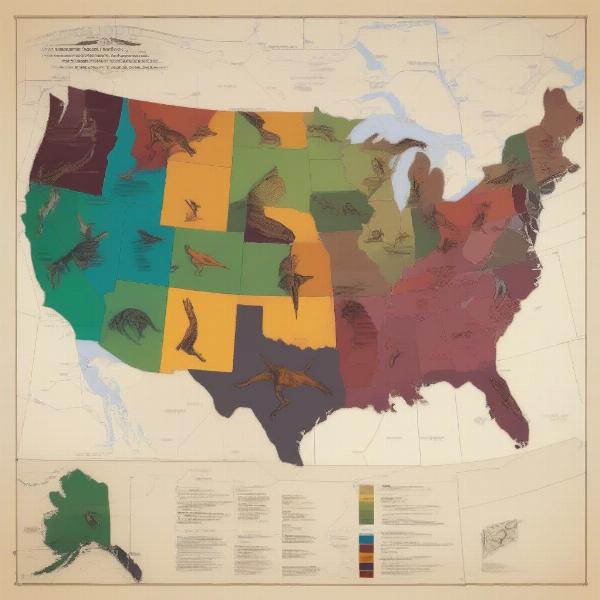Coyote hunting with dogs is a practice steeped in tradition and controversy. While some view it as a necessary form of wildlife management, others raise ethical concerns about the welfare of both the coyotes and the dogs involved. This article will delve into the various aspects of coyote hunting with dogs, exploring the arguments for and against it, the regulations surrounding it, and the potential impact on coyote populations and ecosystems.
Many proponents of coyote hunting with dogs argue that it’s a crucial tool for controlling coyote populations, protecting livestock, and managing game animal populations. They claim that coyotes, being opportunistic predators, can pose a significant threat to sheep, poultry, and other domesticated animals. Additionally, some hunters believe that controlling coyote numbers can benefit populations of deer, rabbits, and other small game.
However, animal welfare organizations and many individuals express serious concerns about the ethical implications of using dogs to hunt coyotes. They point to the potential for injury or death to both the coyotes and the dogs during the chase. Coyotes can suffer from exhaustion, stress, and injuries inflicted by the dogs. The dogs themselves are also at risk of injury from the coyotes or from encountering hazardous terrain during the pursuit.
Regulations surrounding coyote hunting with dogs vary significantly depending on location. Some states or regions permit it year-round, while others have specific seasons or restrictions. Certain hunting methods, such as the use of traps or poisons, may be prohibited. It’s crucial for hunters to thoroughly research and understand the specific regulations in their area before engaging in coyote hunting with dogs. Failure to comply with these regulations can result in hefty fines or other penalties.
 Map showing coyote hunting regulations by state
Map showing coyote hunting regulations by state
Understanding the Impact on Coyote Populations
The long-term impact of coyote hunting with dogs on coyote populations is a complex issue. Some research suggests that coyotes can compensate for hunting pressure by increasing their reproductive rates. This means that removing some coyotes through hunting may lead to a temporary decline in the population, but the remaining coyotes may produce larger litters, quickly replenishing the numbers.
Furthermore, coyote hunting with dogs can disrupt the social structure of coyote packs. This can lead to changes in territorial behavior and may even result in increased conflicts with humans if coyotes are forced to seek food in new areas.
Alternatives to Coyote Hunting with Dogs
Several non-lethal methods for managing coyote populations and protecting livestock are available. These include using deterrents such as fencing, guard animals, and motion-activated lights or sprinklers. Modifying livestock management practices, such as keeping animals in secure enclosures at night, can also significantly reduce the risk of predation.
Conclusion
Coyote hunting with dogs is a contentious practice with both proponents and opponents presenting valid arguments. While some view it as a necessary tool for wildlife management, others raise ethical concerns about animal welfare. Understanding the complex interplay of regulations, ecological impacts, and available alternatives is crucial for informed decision-making regarding this controversial practice. It’s essential for hunters to prioritize ethical considerations, adhere to all applicable regulations, and consider the long-term consequences of their actions on coyote populations and ecosystems.
FAQ
- Is coyote hunting with dogs legal everywhere? No, regulations vary significantly by location.
- What are the risks to dogs involved in coyote hunting? Dogs can suffer injuries from coyotes or the terrain.
- Do coyotes pose a threat to livestock? Yes, coyotes are opportunistic predators and can prey on livestock.
- What are some non-lethal alternatives to coyote hunting? Fencing, guard animals, and motion-activated deterrents are examples.
- How does coyote hunting impact coyote populations? Coyotes may compensate by increasing reproductive rates.
ILM Dog is your trusted source for comprehensive information on dog breeds, health, training, nutrition, grooming, and more. We are committed to providing expert advice and practical tips to help you provide the best possible care for your canine companion. Whether you’re a seasoned dog owner or just starting your journey, we’re here to help. For expert advice on all aspects of dog care, contact us at [email protected] or call us at +44 20-3965-8624. Learn more about us at ILM Dog.